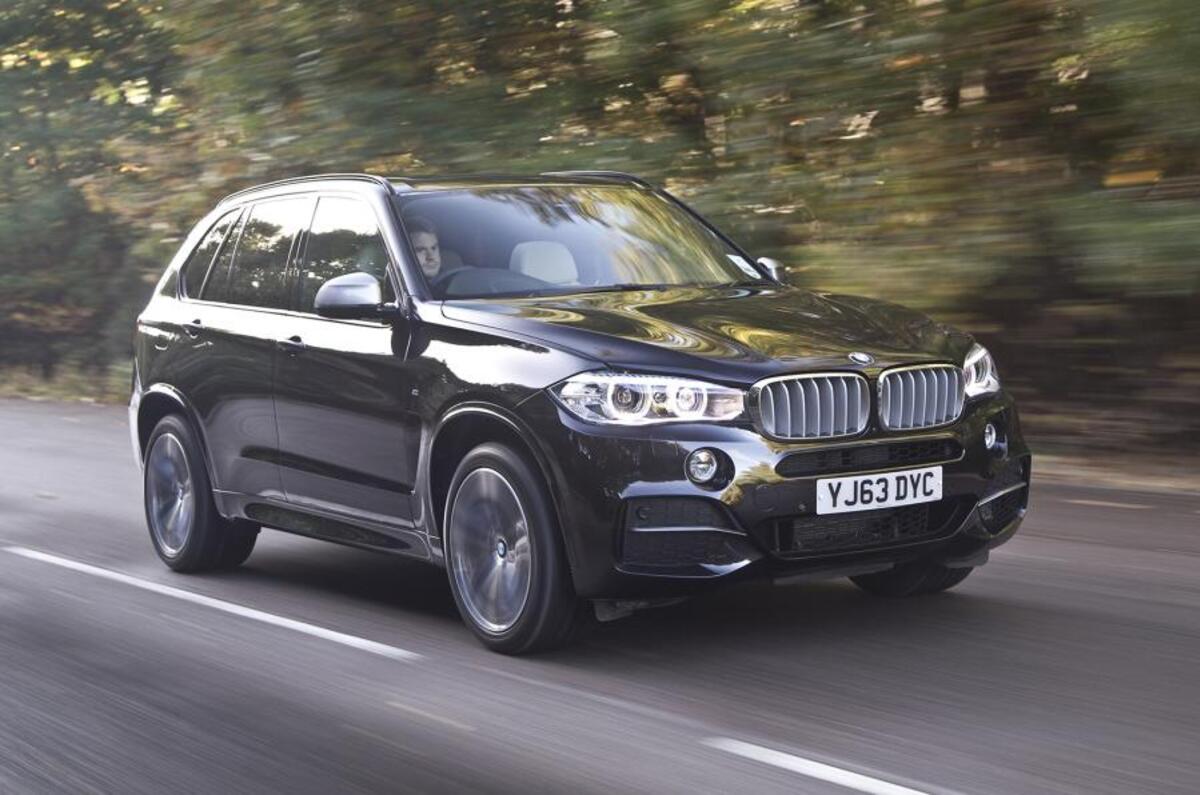BMW has revealed that the next BMW X5 will be built upon the same underpinnings as the latest 7 Series.
Despite the current X5’s relatively short production life (it only arrived three years ago), the model’s successor is already in advanced stages of development. It could arrive next year using BMW’s new Cluster Architecture (CLAR), which is predominantly used as a rear-wheel drive structure but can also cater for four-wheel drive layouts.
The current 7 Series, for example, is available in both rear and all-wheel drive, and the same is expected with the next X5.
2017 BMW 5 Series Touring spotted testing
The CLAR platform uses a mixture of high-strength steel, aluminium and carbonfibre, increasing structural rigidity while saving weight. The next 5 Series is expected to shed 50kg compared with its predecessor thanks to CLAR.
Other models to use CLAR will include the next-generation 3 Series and 6 Series, although it’s not yet known if these models will get four-wheel drive options in the UK.
The 2018 X7, which is set to be BMW’s largest model, will use its own version of the same underpinnings. Speaking to Autocar at the New York motor show last month, BMW head of sales and marketing Ian Robertson said the X7’s underpinnings will be so heavily adjusted that the structure will be basically new.
2018 BMW X7 will definitely be sold in the UK
“If you put both cars [the X5 and X7] next to each other, the resemblance is small in terms of wheelbase and so on,” he said. “We’re not going to just extend the wheelbase; it’s a complete new panel cell."
Engines likely to be offered with the next X5 include a 3.0-litre straight six and a new twin-turbocharged V8, while a 6.0-litre V12 could also feature in range-topping models. Robertson hinted that a hybrid model could also join the line-up later on, because BMW “sold more hybrids to the UK in the first two months of 2016 than in all of 2015".
Robertson said that rather than sharing the X5’s engine line-up, the X7 would take its pick of engines from the entire BMW range.




Join the debate
Add your comment
Early replacement
I do remember the current X5 never really being well received by reviewers when introduced and even now it is typically towards the bottom of not bottom in group tests. It's beaten by the RR, the Audi Q7 and now the Volvo. If it was merely a heavy facelift then that helps explain it's uncharacteristically low class rank. It also explains the decision for early retirement.
What I'd love to know is whether early replacement was always the plan or not. Did they take a gamble cutting back development of the current model hoping it would still compete. I've no idea of how well it's doing against its foes but probably not great.
That said, it makes a lot of sense that BMW would be replacing the X5 sooner than normal.
I am with SPQR regarding the quality of the article though. I had to check - thought I was reading Auto Express for a second! Saying or "quoting" that a hybrid model may join the line up later on is hardly news. If true, it would be well below what I'd expect with ever increasing demands to reduce CO2 emissions. I'd expect at least three hybrids in the range with at least one available from the start and at least one plug in. Also, to help add credence to this story, I'd have expected the writer to have brought up the heavy facelift that is the current model and its use of the previous chassis, not a fellow commentator.
Current model isn't brand new
3-4 years old ?